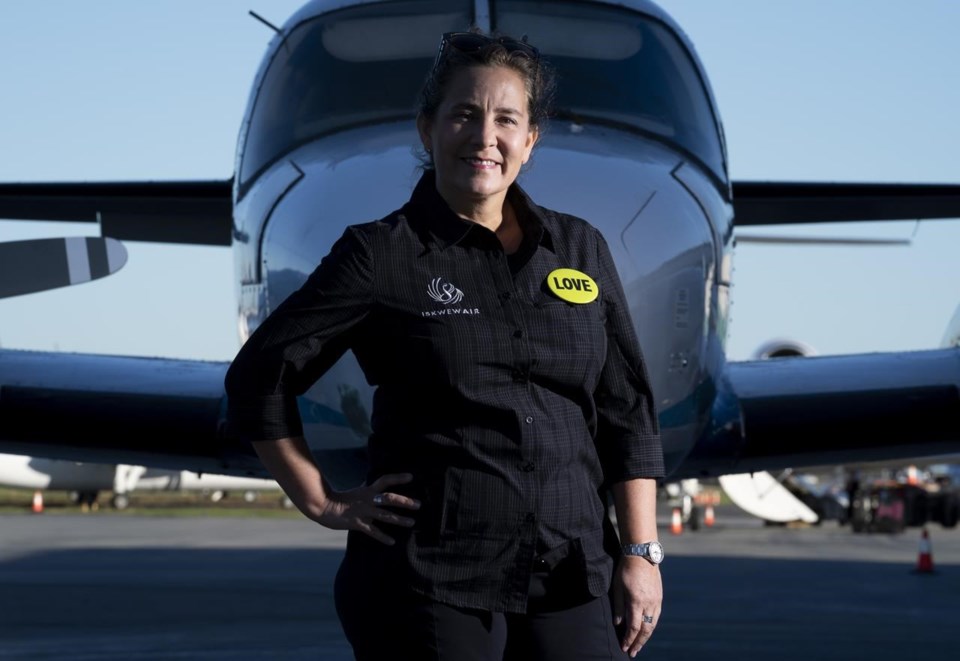TORONTO — The organizer of an Indigenous business conference in Toronto says her goal is to establish the undeniable economic power of Indigenous peoples.
Carol Anne Hilton, founder and chief executive of the Indigenomics Institute, said Wednesday at the inaugural Indigenomics on Bay Street conference that Canada has restricted the economic opportunities of Indigenous peoples for too long.
"This country was built on Indigenous economic exclusion," said Hilton.
She said the range of ambitious Indigenous projects in the works, despite so many people still recovering from the legacies of residential schools and other harmful policies, shows the strength of Indigenous potential.
"Not only are we still here, we're resilient, we're powerful and we are ready to do business."
She has set a goal that the Indigenous economy should grow to at least $100 billion, about double where it is today, so that Indigenous peoples are equally represented in the Canadian economy, though she didn't give a sense of when.
The roughly $48.9 billion share of the economy attributed to Indigenous peoples in 2020 was an increase from $41.7 billion in 2012, as the range of business initiatives grow.
Across the country, there are examples of large projects, from the Mi’kmaq Coalition buying into Clearwater Seafoods on the East Coast, to the Squamish Nation's massive rental building project in Vancouver, to the various resource projects Indigenous peoples have partnered on in the Prairies.
Overall, there were an estimated 37,000 Indigenous-owned businesses in 2018, according to Statistics Canada.
Organizations like the First Nations Financial Management Board and the First Nations Finance Authority are helping guide some financial investments, but Hilton said there also needs to be a national body to help centralize the regulatory, investment and economic reconciliation fronts to move business investment forward.
"At this point, there's no central body pushing the economic ecosystem of national business organizations," she said.
There is an increasing willingness of the federal government to support major projects, with a commitment in Tuesday's fall economic statement to establish an Indigenous loan guarantee program. That program would allow communities to invest in industries, including in natural resources, as the Indian Act prohibits First Nations from using reserve lands as collateral, making it difficult to secure financing for projects.
Hilton said part of the challenge is to also change lingering perceptions of Indigenous peoples as a cost, rather than generative and directly aligned to the economic well-being of Canada itself.
"The fiscal relationship needs to come out from under the shadows of seeing Indigenous peoples as a cost on the system."
Wil Jimmy, of WJ Strategic Partnerships, who spent decades in the banking industry, spoke at the conference about the proposed NeeStaNan Utility Corridor across the northern Prairies that he's helping push forward.
He said that while colonization destroyed so much, and Indigenous people are still recovering, it's important to reflect and move forward.
"Once you acknowledge your past, you deal with your past, you can start the healing process," he said.
"I'm thankful that we've emerged, and we've arrived on Bay Street though Indigenomics, and it is our time. Our people have felt the drumbeat, which is the heartbeat of a nation. We are here, we have arrived."
This report by The Canadian Press was first published Nov. 22, 2023
Ian Bickis, The Canadian Press



